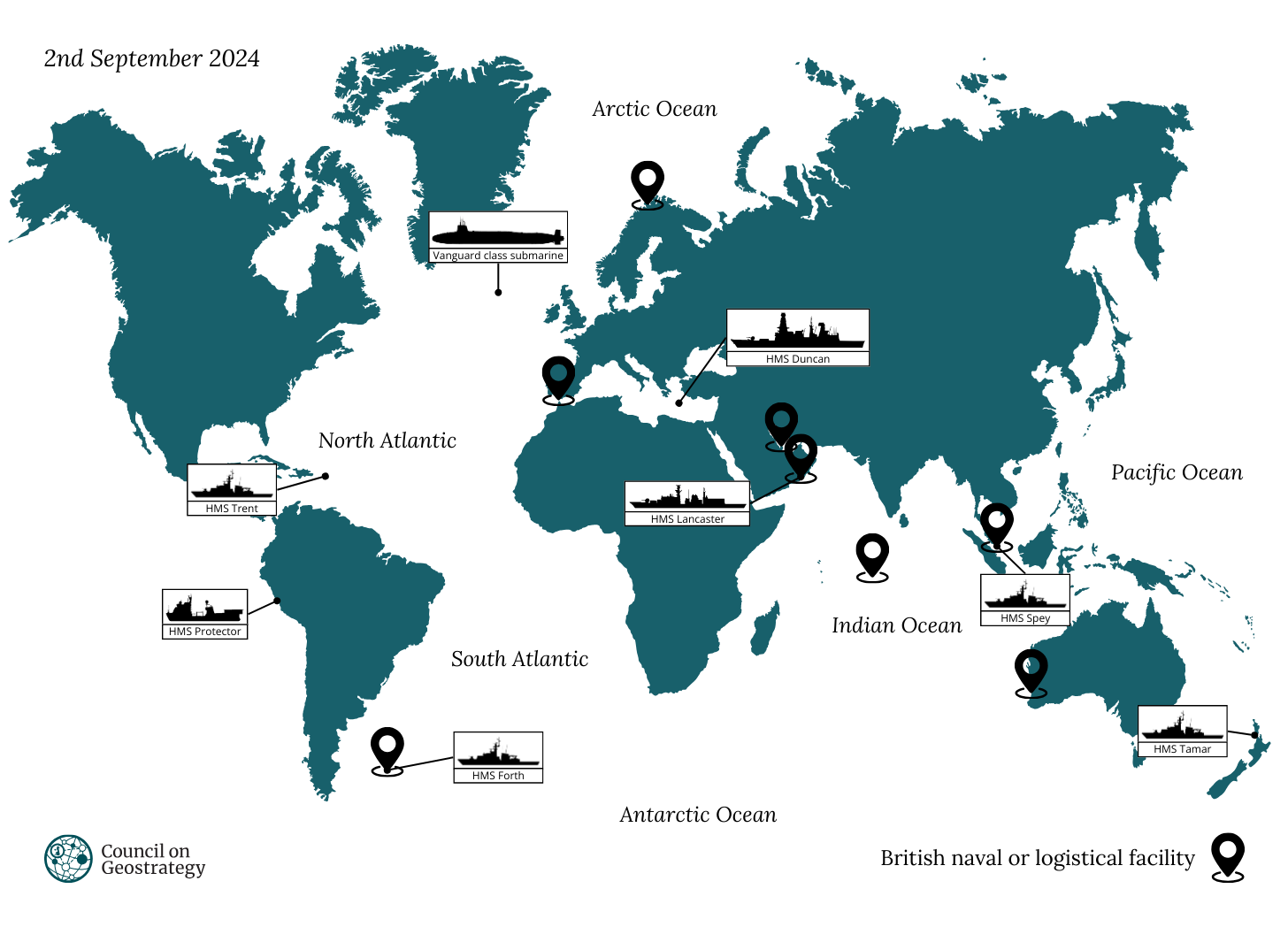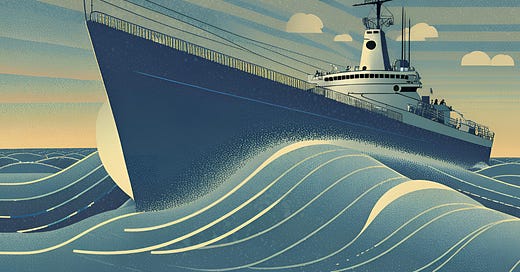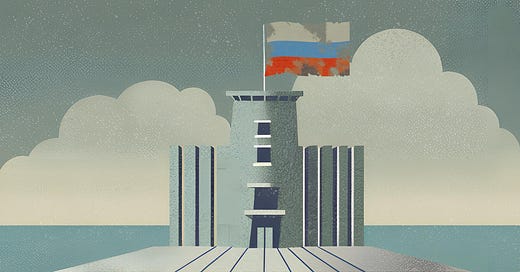
Discover more from Britain’s World
Welcome to the eighth Cable, our weekly roundup of British foreign and defence policy. The Cable is published every Monday at 12:00.
There has been a rush of political activity in the weeks prior to Parliament’s return from recess on 2nd September. His Majesty’s (HM) Government has secured the sixth and final ratification needed for the United Kingdom’s (UK)’s accession to a multilateral free trade group called the Comprehensive and Progressive Agreement for Trans-Pacific Partnership (CPTPP). By the end of this year, Britain will enjoy free trade with the current 11 member nations, which include Australia, Canada, Japan, Malaysia, Mexico and Vietnam. While the immediate economic benefits may be limited, the grouping which spans five continents and covers 600 million people, including a number of rapidly growing economies, could be very beneficial to the UK in the years to come.
In defence R&D news, the Ministry of Defence (MOD) announced that the UK Space Command successfully launched its first military satellite on 17th August. Taking off from California, Tyche is the first of a proposed constellation of Intelligence, Surveillance, Target Acquisition, and Reconnaissance (ISTARI) satellites which should be fully operational by 2031. This constellation will provide the British Armed Forces with an array of orbital sensors, which will strengthen their military readiness and capabilities. In a statement following the launch, Maria Eagle, Minister for Defence Procurement and Industry, said: ‘Tyche shows the UK’s commitment to support innovation in science and technology, stimulating growth across the sector and supporting highly skilled jobs in the UK.’
Additionally, the MOD announced plans for a new ‘silent hangar’ facility to test military equipment against GPS jamming and other electronic warfare capabilities. The new facility is expected to be one of the largest in Europe and is due to be completed by 2026. In a press release, Eagle stated that the test facility ‘...will help us eliminate vulnerabilities from our platforms, protect our national security and keep our Armed Forces better protected on global deployments.’
As part of HM Government’s promise to ‘reconnect’ with the ‘Global South’ – Labour’s term for the previous government’s concept of the ‘middle ground’ – Lord Collins of Highbury, Parliamentary Under-Secretary of State (Africa), carried out his inaugural overseas duties with a visit to Angola and the Democratic Republic of Congo. These diplomatic missions concentrated on the UK’s humanitarian and development support to both countries, including additional funding to help combat the outbreak of Monkeypox in the Congo. Lord Collins also discussed trade, with both countries being sources of critical minerals.
Also on their first official trip, Catherine West, Parliamentary Under-Secretary of State (Indo-Pacific), arrived in New Zealand on 25th August for discussions focused on climate, defence and trade. She then attended a meeting of the Pacific Islands Forum (PIF) in Tonga on 27th August. The focus of these talks was climate mitigation, but West also pursued strengthening defence and economic links with PIF members.
How Britain is seen overseas
The RAND Corporation published a commentary piece warning HM Government not to ‘hand the Middle East to the [People’s Republic of] China’ (PRC). The article stresses the geostrategic importance of Oman because of its location next to some of the world's busiest shipping routes on the edge of the western Indo-Pacific. And, despite more than two hundred years of close London-Muskat relations, particularly on security and maritime issues, the Sultanate is looking to take advantage of Beijing’s largesse.
How competitors frame Britain
Russia Today released propaganda which accuses Britain, Poland and the United States (US) of enabling the Ukrainian invasion into Russia’s Kursk Oblast. The article states that according to the Russian Foreign Intelligence Service (SVR) Ukrainian units operating in Russian territory were trained in Britain and that North Atlantic Treaty Organisation (NATO) military advisers are helping coordinate the invasion. Does the Kremlin expect Britain and its allies to allow Russian forces to devastate Ukraine without consequence?
The People’s Daily reported that Xi Jinping, General Secretary of the Chinese Communist Party (CCP), said that London and Beijing ‘should remain firm as partners, strengthen dialogue and cooperation’ during a phone call with Sir Keir Starmer, Prime Minister. The article goes on to say that Britain and the PRC would benefit from a stable and mutually beneficial relationship. No doubt, but a relationship is only mutually beneficial if both sides play by established rules – which the PRC is flouting once again in the South China Sea.
Tracking the Royal Navy’s global deployments
Though largely invisible, the British nuclear deterrent was on show last week as HMS Vigilant cruised into Faslane. HMS Protector made a port call in Lima as the vessel heads south to the Antarctic, while HMS Duncan visited Crete to replenish as the destroyer continues on its deployment in support of British interests in the Eastern Mediterranean.
In other parts of the world, HMS Lancaster arrived at the British defence hub in Duqm in Oman. Offshore patrol vessels HMS Forth, HMS Trent, HMS Spey and HMS Tamar were busy as ever. HMS Forth remains in the Falkland Islands protecting British interests, HMS Trent visited Antigua after assisting the British Virgin Islands in the aftermath of Hurricane Ernesto, HMS Spey has hosted guests while undergoing maintenance at the British logistics facility in Singapore, and HMS Tamar has been touring Wellington and Auckland in New Zealand.
How Britain thinks about foreign affairs
In the last week, Sir Keir visited both Berlin and Paris, as part of his government’s proposed ‘reset’ with the European Union (EU) and various European allies. As with this government’s previous outreach to the continent, the focus has been on security. In their meeting on the 29th August, Sir Keir and Emmanuel Macron, President of France, discussed illegal immigration, as well as pursuing a political solution to the current conflict in the Middle East – which follows the joint visit to Israel and Palestine by both European countries’ foreign ministers.
Meanwhile, on his fifth meeting with Olaf Scholz, Chancellor of Germany, since becoming prime minister, Sir Keir visited Berlin on August 28th to begin negotiations for a new bilateral treaty, which will aim to boost trade and deepen defence and security cooperation. In a statement during his time in Germany, Sir Keir said ‘We must turn a corner on Brexit and fix the broken relationships left behind by the previous government.’
Implications
While the actions of HM Government over the last two months have been constructive and that there has been a positive rhetorical shift in Labour’s approach to Europe, there is still a lack of clarity on what exactly the reset with Europe will entail.
The Government has affirmed its position that ‘reconnecting’ with France, Germany and the EU will only go so far, ruling out ‘reversing Brexit’ or joining either the customs union or the single market. However, the elephant in the room is that with these options off the table, there are limited pathways to build substantially closer UK-EU relations. Concessions on both sides will be required, but currently there is little detail on what these could be.
Therefore, the British strategy appears to be focused on bilateral deals with key European countries, focusing on areas which are still dominated by national governments rather than Brussels, particularly defence. This also plays into London’s hand, as a key pillar of NATO and a substantial spender on defence, security, and intelligence.
Pursuing limited bilateral deals in the short-term to build trust and confidence while taking a leading role in multilateral and minilateral groupings across Europe, such as the European Political Community or the Joint Expeditionary Force, is a sound approach for the time being. But London and the various capitals across Europe – and particularly Brussels – ought to express clearly what their longer-term goals for the relationship are, otherwise the reset may result in frustration and recrimination.
If you found this Cable useful, please subscribe or pledge your support!
What do you think about this Cable? Why not leave a comment below?
















